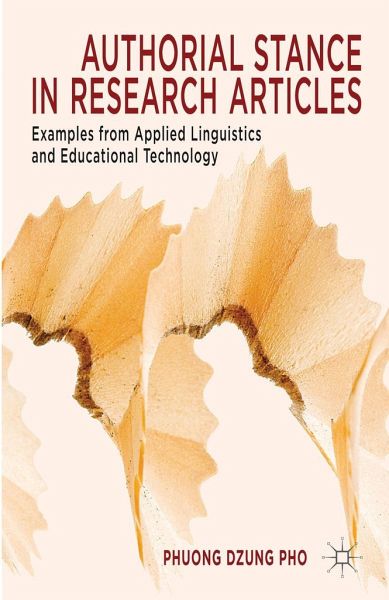
Authorial Stance in Research Articles
Examples from Applied Linguistics and Educational Technology
Versandkostenfrei!
Versandfertig in 6-10 Tagen
38,99 €
inkl. MwSt.
Weitere Ausgaben:

PAYBACK Punkte
19 °P sammeln!
How do I structure a journal article?; "Can I use 'I' in a research article?"; "Should I use an active or passive voice?" - Many such questions will be answered in this book, which documents the linguistic devices that authors use to show how they align or distance themselves from arguments and ideas, while maintaining conventions of objectivity.














